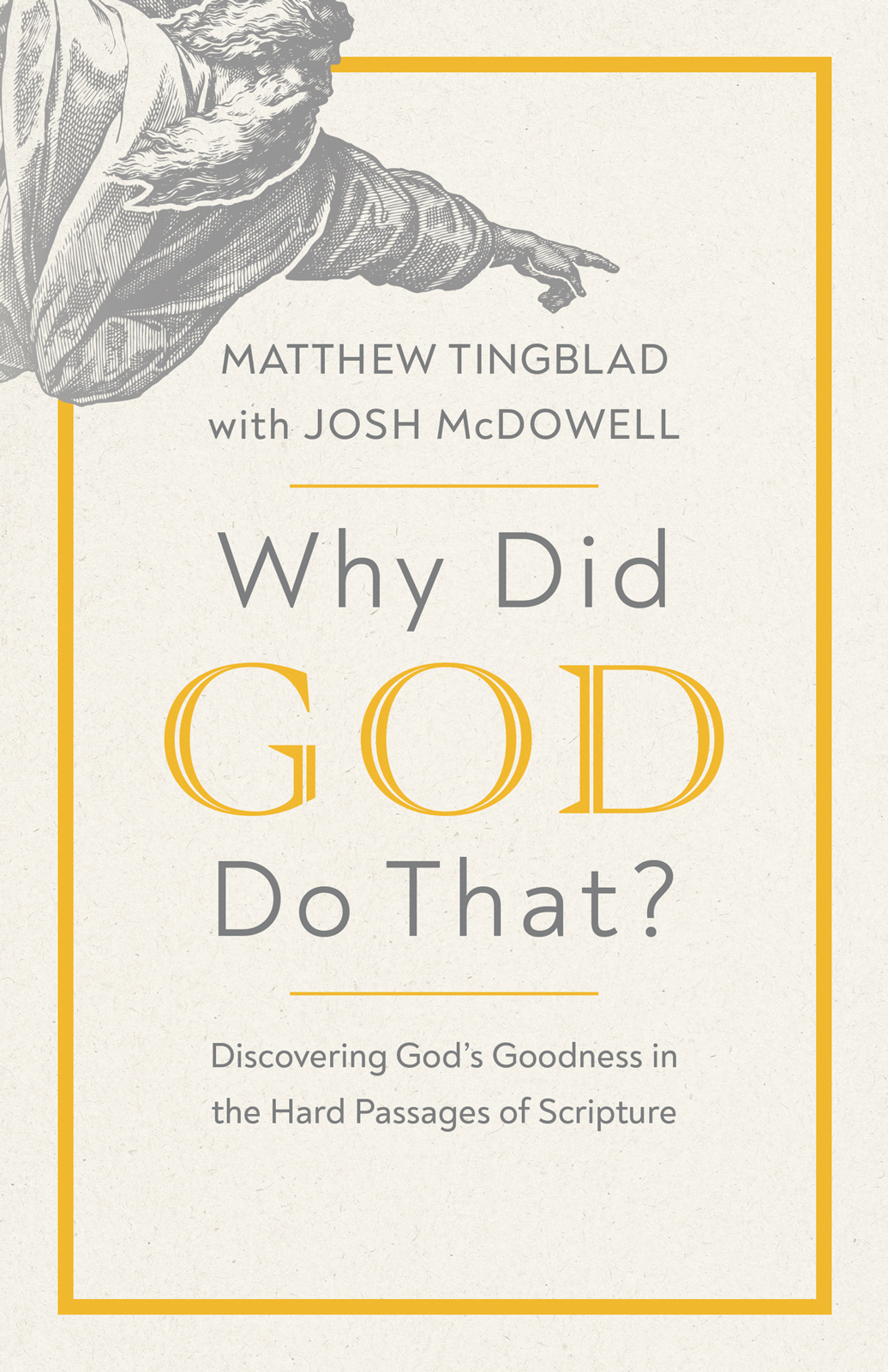Perhaps the most challenging aspect of . . . various biblical “heroes” is not what they did, but what they prayed. Consider this prayer from David in Psalm 109:6-10 (ESV):
Appoint a wicked man against him;
let an accuser stand at his right hand.
When he is tried, let him come forth guilty;
let his prayer be counted as sin!
May his days be few;
may another take his office!
May his children be fatherless
and his wife a widow!
May his children wander about and beg,
seeking food far from the ruins they inhabit!
On and on David goes, speaking curses upon his enemies. This psalm is considered to be an imprecatory psalm, or a cursing psalm, which is a psalm speaking ill of others. More than a dozen psalms could be labeled imprecatory, at least partially. Reading psalms such as these, we may be tempted to invoke our previous principle of interpretation: Just because the Bible records something does not mean God endorses it. But in this case, it’s not that simple. The book of Psalms is a collection of songs and prayers written by David, Solomon, and others, intended to be used for prayer and worship in the life of God’s people. If Christians are supposed to pray the psalms, does that really mean we are to follow after David and others who cursed their enemies?
Truth be told, the imprecatory psalms are not the only psalms that may bother the Christian. Many of the lament psalms accuse God of abandoning his people or being indifferent to evil (for example, Psalms 10:1; 22:1; 42:9; 44:24; 74:1-11). Are these psalms models for us to follow? In a word, yes. The writers were modeling honesty. They were open. They were raw. They were showing what real relationship is like. The psalms give us permission to pray our feelings honestly before God. This is a good thing! We don’t need to polish our prayers and clean ourselves up before we approach God. He can handle our fears, our worries, our doubts, and even our anger.
The Bible teaches that we should not foster hate in our heart against others. Instead, we should love our enemies (Leviticus 19:17; Proverbs 25:21; Matthew 5:43-48). But if we do feel hatred or rage toward our neighbor, we should at least be honest to God about it. The imprecatory psalms give us permission to use prayer as an outlet for such honesty.
Many of these prayers against other people are nothing more than a cry for God’s judgment against evil . . . Psalm 79 is a good example of this. The author, Asaph, recounts all the horrible things the nations have done against God and his people. So he prays in verse 6, “Pour out your wrath on the nations that refuse to acknowledge you—on kingdoms that do not call upon your name.” Rather than taking matters into his own hands, Asaph gives them up to God’s perfect justice. When we find ourselves wanting to harm others in revenge, we would do well to pray in a similar fashion. Such prayers can free us to follow the wisdom of Paul, who wrote,
Beloved, never avenge yourselves, but leave it to the wrath of God, for it is written, “Vengeance is mine, I will repay, says the LORD.” To the contrary, “if your enemy is hungry, feed him; if he is thirsty, give him something to drink; for by so doing you will heap burning coals on his head.” Do not be overcome by evil, but overcome evil with good (Romans 12:19-21).
— Matthew Tingblad is a writer and speaker with a focus on applying theology to today's biggest challenges to Christianity. Through his work and speaking events with Josh McDowell Ministry, he offers wisdom and sensitivity to a world full of tough questions and deep needs.
— Josh McDowell has been reaching the spiritually skeptical for more than five decades. Since beginning ministry in 1961, Josh has spoken to more than 25 million people in 128 countries. He is the author or coauthor of 148 books, with over 51 million copies distributed worldwide. Josh continues to travel throughout the United States and countries around the world, helping young people and adults strengthen their faith and understanding of Scripture.
image: King David, the King of Israel
---
Excerpted from Why Did God Do That?: Discovering God’s Goodness in the Hard Passages of Scripture by Matthew Tingblad and Josh McDowell (Harvest House, 2023). Used by permission.
Find Why Did God Do That? at Amazon, Harvest House, and other major booksellers.
*sponsored post




